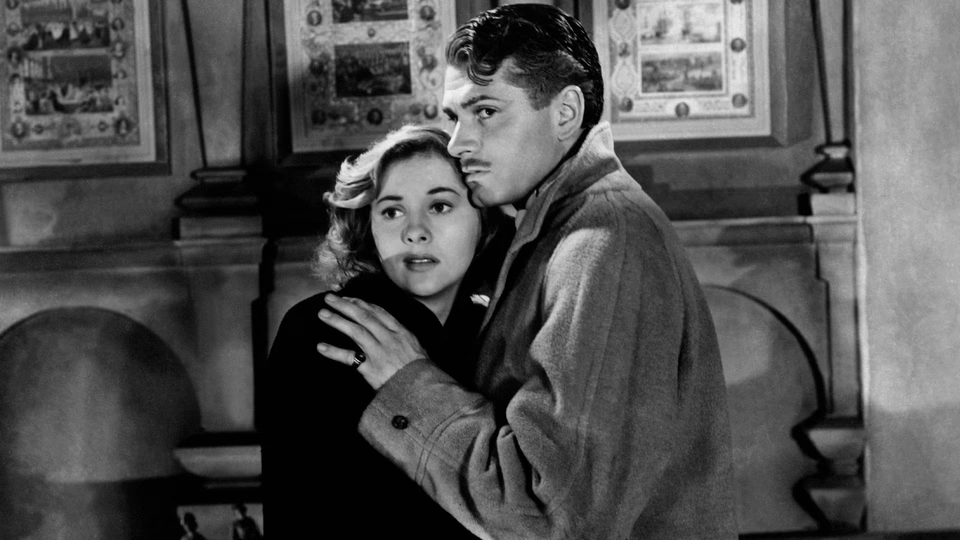Rebecca

After marrying a rich widower (Laurence Olivier), a timid young woman (Joan Fontaine) grapples with intrusive reminders of his dead wife.
Rebecca is a solid atmospheric thriller from director Alfred Hitchcock.
The cast ranges from very good to excellent. Joan Fontaine is very believable as a meek young woman feeling insecure after vaulting into society life, Laurence Olivier is great Fontaine’s character’s charming but enigmatic husband, Judith Anderson is suitably stern and menacing as their housekeeper, and George Sanders is deliciously sleazy as the titular character’s “favorite cousin.”
Rebecca works largely on atmosphere, and the ever-increasing claustrophobic sense of dread Hitchcock is able to generate. He’s near perfect, only slipping once, during the memorable scene in Rebecca’s bedroom, where he overplays Joan Fontaine’s character’s timidity to the point where she loses the audience’s sympathy. Enough is enough girl, it’s only a bedroom. Stand up for yourself. Fortunately, Hitchcock rights himself quickly by having Fontaine’s character do just that as the movie shifts from atmospheric chiller to mystery.
At two hours and ten minutes, Rebecca does drag a bit during repeat viewings, where the third act’s twist is less of a shock. Compounding this is a motion picture code mandated change in the titular character’s fate, which robs Olivier’s character of some much-needed edge. Hitchcock reportedly clashed with producer David O. Selznick over the script, with O. Selznick insisting the film version not deviate from the novel. One can only wonder what changes Hitchcock wanted to make, but it’s likely they would have gone a long way to improving the film’s longevity.